FIFSW visits First Nations House

On September 22, students, faculty and staff at the Factor-Inwentash Faculty of Social Work visited University of Toronto’s First Nations House to forge connections and build relationships with the Student Life service centre — and each other.
The visit was proposed by FIFSW’s Truth and Reconciliation Collective as a way for students across FIFSW’s programs, including the Indigenous Trauma and Resiliency field of study, to connect with each other and form bonds.

In addition to providing culturally relevant services to Indigenous students from across U of T, First Nations House offers opportunities for all U of T students to engage with Indigenous communities on and off campus.

On the day of FIFSW’s visit, Jenny Blackbird, the Resource Centre and Programs Coordinator for First Nations House, introduced our community members to resources, programs, and spaces available at the centre, including a library featuring a wide range of Indigenous-related content and a student hub space where U of T students can meet, study, or eat lunch. She also shared opportunities available to connect with Indigenous Elders through the House, as well programs, academic supports, wellness initiatives, and other opportunities, such as the Firekeeper Training Program.

FIFSW would like to extend its gratitude to First Nations House for welcoming us and helping foster a deeper understanding of the valuable resources that it has to offer. We’d also like to thank the Truth and Reconciliation Collective for initiating the visit and strengthening our community’s ties to this valuable campus hub.
All photos, above, by Jim Moore.
Learn more!
“We exist. We persist. And we can achieve extraordinary things.” Social work graduate Lev Goldberg shares insights on his 51km swim across Lake Ontario for trans visibility

Lev Goldberg adjusts his goggles in Lake Ontario during a training session at Woodbine Beach. Photo by Yaldah Azimi.
On September 3rd, Lev Goldberg (MSW 2020) became the first openly transgender person to swim across Lake Ontario, completing the 51-kilometre journey from Niagara on the Lake to Marilyn Bell Park in 24 hours and 25 minutes. We caught up with the Master of Social Work graduate a few days after his epic swim.
When did you first get the idea to swim across Lake Ontario to raise awareness of transgender visibility?
I swam for two years on the swim team as a child and stopped when I was nine. I now realize a factor in that was gender dysphoria and discomfort in my body. I came back to swimming around age 27, about two years after I had top surgery. It was just for fun, to try something new. I had already been running long distances and knew that very long efforts at sustainable paces are possible.
I then discovered a big open water swimming community and met people there who had swum across Lake Ontario. One is Kim Lumsdon who has swum across Lake Ontario twice and was training in 2023 to do it again and become the oldest woman to cross the lake. I found her so inspiring. I wondered if there were trans people doing this, but I couldn’t find any trans marathon swimmers at all. I knew that if I did it, others like me would see themselves reflected. I think the next trans person to swim across Lake Ontario is probably following this now and that really excites me and makes me so happy.
You are 29 years old now, which means it was just two years ago that you returned to swimming and thought ‘I’m going to do a 24-hour swim across Lake Ontario!’ That’s impressive!
It’s only sunk in how weird it is after the fact. I started swimming in January 2023 and became aware of open water swimming that February. That June, I did my first open water training season and was in a 2.5-kilometer race that August. The next summer I found a coach through a queer and trans swim team, and I built up to a 10-kilometer race. This year was really the big year when it felt like I was not ever finding the point where I was tired or it was too much. It just seemed very doable, like why couldn’t I do it? Why not?
Who supported you in this journey?
First, my coach, Tai Hollingbery. They were the first person who asked me, do you have any big swimming goals? And I was like, yes, I want to swim across Lake Ontario! That really began this journey.
I also definitely couldn’t go through this without my family. My dad was here with me for two weeks, driving me places and helping me. My sister lives in North Carolina and came here for 10 days. She’s managed my social media and helped me reach out to potential sponsors and partners. Numerous friends helped with fundraisers. I had a crew on board the boat that drove beside me during the swim. This included my pacers, who took turns swimming with me. There was also a land crew. It’s such a big undertaking — it takes a village for sure. It required a lot of people to spend a lot of time and effort to be part of it, and I’m very, very grateful.
 In addition to increasing trans visibility, you are raising funds for the LGBT youthline. What inspired you to choose this organization?
In addition to increasing trans visibility, you are raising funds for the LGBT youthline. What inspired you to choose this organization?
I was peer support volunteer for them when I was first transitioning. It was such a valuable experience, not only because of the skills I gained, but also because of the other youth volunteers that I met. The organization provided a safe space where I could transition socially, where people would use my name and see me for who I was. LGBT Youthline is valuable from all directions: for the peer support they are providing to youth who need it and for the youth who are giving that support and meeting each other and being part of a community. It was such an important part of my life. It is also just such a fantastic truly justice-oriented organization.
(Visit Goldberg’s GoFundMe page to learn more and donate.)
You’ve shared advice for trans people who would like to get into sports but may feel hesitant. What advice do you have for coaches, teammates or sports administrators who want to be better allies? How can they better support trans youth and adults in sports?
You might not think there’s a trans person in your athletic space or on your team, but you could be wrong about that. There could be someone there who knows they’re trans and are not comfortable being out, or someone who has transitioned and doesn’t feel comfortable sharing that with people. If you want to truly be trans inclusive in your in your space, you need to assume that there are trans people there — or that there should be or will be. Remember also that there are both binary trans people and nonbinary trans people. Not having any option outside male and female is a barrier and can be so harmful.
How does your role as a social worker overlap with your goal to raise trans visibility and resilience as a long-distance swimmer?
My work as a youth and family therapist at Central Toronto Youth Services really connects me with my purpose and what I’m doing. I work almost exclusively with trans youth in their Pride and Prejudice Program and see how hard it is for kids to be experiencing a world that is getting worse for them in many ways. I’ve witnessed people much younger than me go through a lot of suffering and yet show so much resilience.
What’s next for you?
I’ve been so honored and grateful those who stepped up to help me with my crossing. So, I’m going to get my boating license, and I’m hoping to support at least one other person’s crossing next year. Once you’ve done it, you just want to get other people across. I want to help make someone else’s dreams possible.
I like cold water swims, so I’m also training for an ice mile, which is 1.6 kilometers in 5 degrees Celsius or less. I’ll definitely do another marathon swim next year as well. Ultimately, I want to swim all five Great Lakes.
You have done a lot of media interviews. Is there anything about your experience that hasn’t yet been shared?
A lot of people have called the crossing grueling. Grueling means punishing, but I had fun the whole time! I don’t do things that are miserable.
The other word I don’t like is “conquer”. I don’t think anyone conquers a Great Lake. It’s an enormous, majestic powerful force of nature and it is was due to the grace of the lake that I was allowed to cross. Many people work as hard as me, swim better than me and the conditions do not allow them to cross. No one, in my opinion, conquers a force of nature, a body of water. It’s not about that at all.
What insights from your experience would you like to share with a social work audience?
There can be a lot of barriers that prevent trans people from finding the things that make them happy in life. We might come to the things we love later because of that. If you are working with trans youth who don’t have that thing that’s keeping them going, that’s showing them who they are and why they’re here, it may be that they need to get on level ground before they can get there. They might need access to a supportive community or gender affirming care, or experience the self-actualization of transitioning before they’re able to fully step into what makes them who they are. I just want to plant a seed of hope that addressing the basics is an important step in setting someone up to ultimately thrive.
Interested in learning more? Read more media coverage on Lev Goldberg’s historic swim:
Toronto Life: “I became the first openly trans person to swim across Lake Ontario. It was euphoric”
CBC: Trans swimmer Lev Goldberg on preparing for an epic lake-crossing and becoming a trailblazer
Click here to donate to Lev Goldberg’s GoFundMe campaign to support LGBT Youthline
Meet two FIFSW professors who are creating supportive and innovative learning environments for social work students
Two faculty members from the Factor-Inwentash Faculty of Social Work have received 2024-2025 Teaching Awards in recognition of their contributions and commitment to teaching and supervision. Professor Shelley Craig received FIFSW’s Supervision Excellence Award and Professor Micheal Shier received FIFSW’s Teaching Excellence Award.
FIFSW’s teaching awards recognize excellence in teaching and contributions to the Faculty’s educational programs through curriculum development, innovation, and research on education.
“Preparing students to excel as ethical and skilled social work practitioners, leaders, and researchers is central to the Factor-Inwentash Faculty of Social Work’s mission,” says Charmaine Williams, Dean of the Faculty. “Professors Craig and Shier’s dedication to students, innovative teaching, supervision and mentorship, and spirit of collaboration embody FIFSW’s commitment to top-quality, learner-centred education.”
Professor Shelley Craig

Through her leadership in a variety of supervisory roles within FIFSW programs and beyond, Professor Craig has built supportive learning environments that create opportunities for students and emerging academics from around the world to lead projects, participate in symposia and committees, and build on their strengths in research.
“Mentoring, formally or informally, is part of my academic philosophy,” says Craig. “I work to tailor each supervisory experience to each student’s experience and learning approaches and unlock their expertise. Guiding and encouraging future leaders in our profession is both a pleasure and a significant responsibility.”
Craig’s supervisory work has included support for high school, Master of Social Work, and PhD students, alike. As the Prinicipal Investigator for the International Network for Queer Youth Resilience (INQYR), Craig leads an International Student Training Network — a two-year bilingual training program that has trained emerging sexual and gender diverse (SGD) scholars in Canada, the US, Mexico, the UK and Australia to conduct research with SGD populations.
Over 250 students have benefited from her advanced research training programs, research lab activities, and postgraduate supervision.
“I have envisioned a future where sexual and gender diverse academics would have community, self-efficacy, and cutting-edge research skills to lead the next generation of social justice scholarship,” says Craig.
Professor Craig served as FIFSW’s Associate Dean, Academic from 2016 to 2019.
“What sets Dr. Craig apart is her unwavering commitment to improving the lives of sexual and gender diverse people through research and practice,” says Kaitrin Doll, a PhD Candidate at FIFSW. “She models hard work and purpose-driven scholarship, setting a powerful example for students navigating academic spaces where queer women have not always had equal opportunities for success. Her drive, clarity of vision, and research impact are deeply inspiring. She shows what is possible when drive and commitment are not just a way of leading but lived values.”
Professor Micheal Shier
 Professor Shier’s recent leadership as Director of the Master of Social Work program and as Coordinator of the Human Services Management and Leadership Field of Study exemplifies his commitment to FIFSW students and programs. But his innovative leadership is also evident in the classroom, where he has worked to incorporate applied experience and practice with research and theory. Shier also sees mentorship as key to student education and support.
Professor Shier’s recent leadership as Director of the Master of Social Work program and as Coordinator of the Human Services Management and Leadership Field of Study exemplifies his commitment to FIFSW students and programs. But his innovative leadership is also evident in the classroom, where he has worked to incorporate applied experience and practice with research and theory. Shier also sees mentorship as key to student education and support.
“I have been very fortunate in my student and professional academic career to have had exceptional mentors that have nurtured and supported my creativity and independent learning,” says Shier. “These experiences have made me mindful of the need to give a high level of support to my students to enhance their own skills and overall development in achieving their intended goals.”
Incorporating technology, such as video animation software, into the classroom along with a variety of instructional methods gives Shier’s students the opportunity to experiment with different ways to articulate their ideas as they develop tangible leadership skills and apply those skills in a practicum or work setting. Shier also encourages the students in his classes to share their knowledge and experiences.
“Students are active participants in learning, not passive receivers of facts, theories and case studies. There is a working partnership between the student and the instructor,” says Shier of his approach. “I try to incorporate multiple perspectives in the classroom. Respect and understanding of diverse identities provide an opportunity for shared learning and personal and professional development and growth for all.”
This year, Professor Shier takes on a new role as FIFSW’s Associate Dean Academic.
“Professor Shier truly shifted my perspective on leadership and social innovation,” says Destin Bujang (MSW 2025). “He challenged me to think beyond traditional frameworks and helped me see how lived experience could inform systems change in powerful ways. His mentorship allowed me to lead with both purpose and authenticity, and he gave me the confidence to pursue a unique path rooted in community. The way he models values-driven leadership in both academic and real-world contexts makes him incredibly deserving of this award.”
Nominations for FIFSW Teaching Awards are made by students, alumni and faculty. Learn more via the Faculty’s Teaching Awards web page.
Introducing the Factor-Inwentash Faculty of Social Work’s new Academic Plan

The Factor-Inwentash Faculty of Social Work at the University of Toronto has firmly established itself as a national and global leader in social work education, research, and practice innovation. As we look to the future, we recognize both our responsibility and opportunity to lead.
Our 2025-2030 Academic Plan, Leading Transformative Change through Innovation, Education, and Collaboration outlines the directions, values, and goals that will guide our efforts.
Working collectively, we aim to address complex social problems, cultivate relationships, and create environments that will lead to impactful social change.
We believe social work can drive progress toward truth and reconciliation, social justice, equity, and well-being for all.
We invite you to join us in this achieving this goal.
View FIFSW’s 2025-2030 Academic Plan as an accessible PDF
View via ISSUU below
Our Academic Plan is also posted in the ‘About Us’ section of FIFSW’s website.
Professor Barbara Fallon elected a Fellow of the Royal Society of Canada and Professor Carmen Logie appointed a member of the RSC College
On September 4, the Royal Society of Canada (RSC) announced its Class of 2025 New Fellows and College Members.
Professor Barbara Fallon was elected a Fellow of the RSC — the highest honour in the Arts, Humanities, Social Sciences, and Sciences in Canada.
Professor Carmen Logie was elected a Member of the RSC’s College of New Scholars, Artists and Scientists — a distinction that recognizes mid-career intellectual leaders for their capacity to address major challenges and seize new opportunities in their fields.
“The Royal Society of Canada is delighted to welcome into its ranks a talented group of inspiring researchers, artists, and creators whose peers have recognized their exceptional contributions to the world of science and culture, as well as to the well-being of Canadians. Their research will continue to influence public policy for years to come, while improving the well-being of our society,” said Alain-G. Gagnon, FRSC, President of the RSC in a press release.
 Transforming Child Welfare: Professor Barbara Fallon
Transforming Child Welfare: Professor Barbara Fallon
Professor Barbara Fallon’s contributions to child welfare research have reshaped approaches the care and protection of children. For over 25 years, she has led national and provincial data collection efforts, ensuring that child welfare policies are grounded in evidence and developed in partnership with communities.
Her work has had a profound impact on both practice and policy, helping to build systems that are more responsive, equitable, and effective.
Professor Fallon’s dedication to evidence-based decision-making has made her a trusted voice in the field, and her influence continues to guide the evolution of child welfare services across borders.
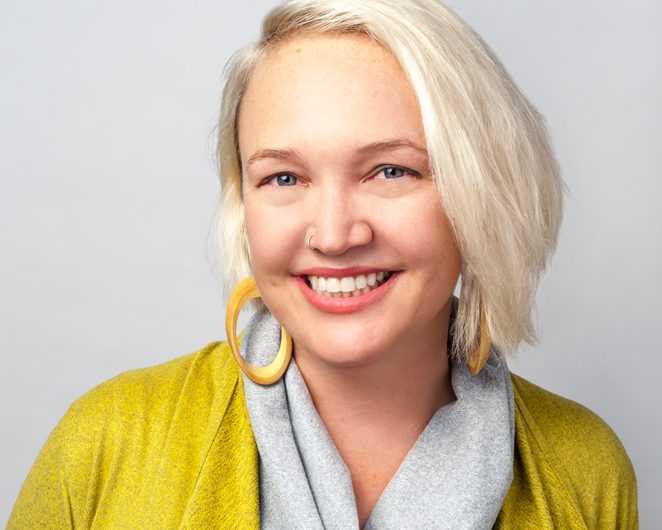 Championing Global Health Equity: Professor Carmen Logie
Championing Global Health Equity: Professor Carmen Logie
Professor Carmen Logie, Canada Research Chair in Global Health Equity and Social Justice with Marginalized Populations, is a trailblazer in the field of HIV research, the impact of stigma, and sexual health equity. Her work is distinguished by its interdisciplinary nature and its commitment to social justice, engaging communities both locally and globally.
Dr. Logie’s research informs policy, transforms practice, and uplifts marginalized voices. Her innovative approaches to knowledge creation and mobilization have made her a leading authority on stigma and global health equity. With a prolific record of publications and research funding, she continues to influence how health systems and societies respond to the needs of vulnerable populations.
A Celebration of Excellence
The official induction of the 2025 Fellows and Members of the RSC College will take place on Friday, November 14, 2025, during the Celebration of Excellence and Engagement in Montréal, Québec.
Meet RSC’s Class of 2025 [PDF]
Related News:
- Professor Peter A. Newman named a Fellow of the Canadian Academy of Health Sciences
- Jia Xue receives an Ontario Early Researcher Award to investigate the growing prevalence of image-based sexual abuse
Back-to-school 2025: 5 things every FIFSW student should know
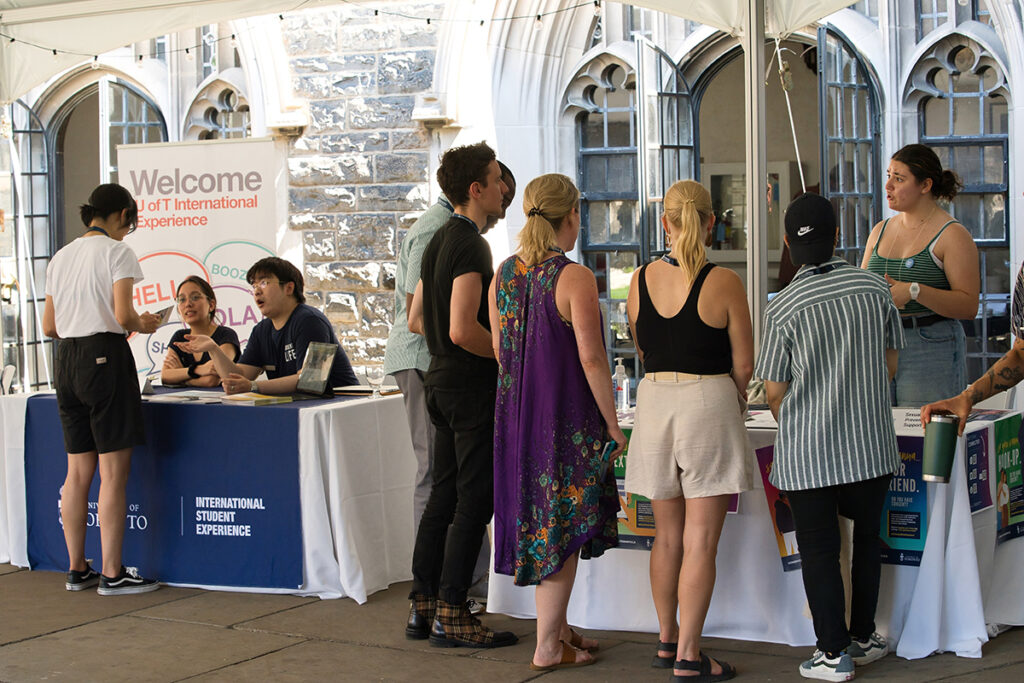
September will bring new and returning students back to the Factor-Inwentash Faculty of Social Work’s building at 246 Bloor Street West. Whether you are setting foot in the Faculty for the first time or well-versed with all of FIFSW’s nooks and crannies, here are 5 resources to support your success in the upcoming school year. What would you add to the list? Email us to let us know! We’ll share the tips below and others on social media in the month ahead!
1. Our FIFSW Connect platform helps students stay in touch with each other and learn about new opportunities.
FIFSW Connect is a private platform where current students can connect with one another, access mentorship programs, view updates from the Faculty, see notifications on events around the campus — and much more!
To register for an account, please go to FIFSW Connect and click “Join Now”. Once you are there, register with your U of T email and complete your profile. Within 1-2 business days, your account will be approved by the platform and you will then be able to access FIFSW Connect. Please make sure you register with your U of T email address in order for your account to be approved!
Afterward, make sure your notifications are set and profile is completed to receive messages relevant to you, and check back often for updates.
2. Follow FIFSW on social media!
Looking for more ways to stay informed about research, events and more? FIFSW is on Instagram, Linkedin, Facebook, Bluesky, X and YouTube. We also have a monthly newsletter that goes to everyone in our community and shares the latest news and events from the Faculty.
3. Bookmark our Key Academic Dates and Deadlines page to stay on top of important dates.
Need to find the course drop deadline, when to pay fees, or other important dates? Visit and bookmark the Dates & Deadlines page on our website.
4. Be sure to register with Accessibility Services if you require academic accommodations to address disability-related barriers.
At FIFSW, we believe in inclusive student success and are ready to support your accessibility needs. FIFSW students who require academic accommodations to overcome disability-related barriers can visit our Accessibility page to learn how to receive support.
Students seeking assistance in navigating disability-related barriers to academic success in the classroom, in our simulation program or in practicum are strongly encouraged to register with Accessibility Services for academic accommodations as soon as possible. Learn more about the steps to receiving support for your accessibility needs.
5. FIFSW staff, students and faculty are here to answer your questions!
Still have questions? There are so many in our community who can provide help! Our crew of Student Ambassadors are upper year FIFSW students who can provide support from their unique student perspectives. Students are also always welcome to visit the Main Office in Room 200 where you can find our Operations and Student Services Teams.
View more tips from our FIFSW Student Ambassadors and advice from alumni via FIFSW’s instagram account.
Learn more via the links below
- Student Life & Services: Includes information on mentorship programs, student groups, and academic support
- Policies & Procedures: Includes information on reporting EDI concerns, academic integrity, coursework extensions, and more
- Timetables: All FIFSW timetables are listed!
- Student Finances: Includes information on your fees, payment schedules, financial supports, and more
Visit the Current Students section of FIFSW’s website for additional information relevant to FIFSW students.
In case you missed it…
Don’t forget to visit UTogether: Your guide to the University of Toronto community
Professor Peter A. Newman named a Fellow of the Canadian Academy of Health Sciences
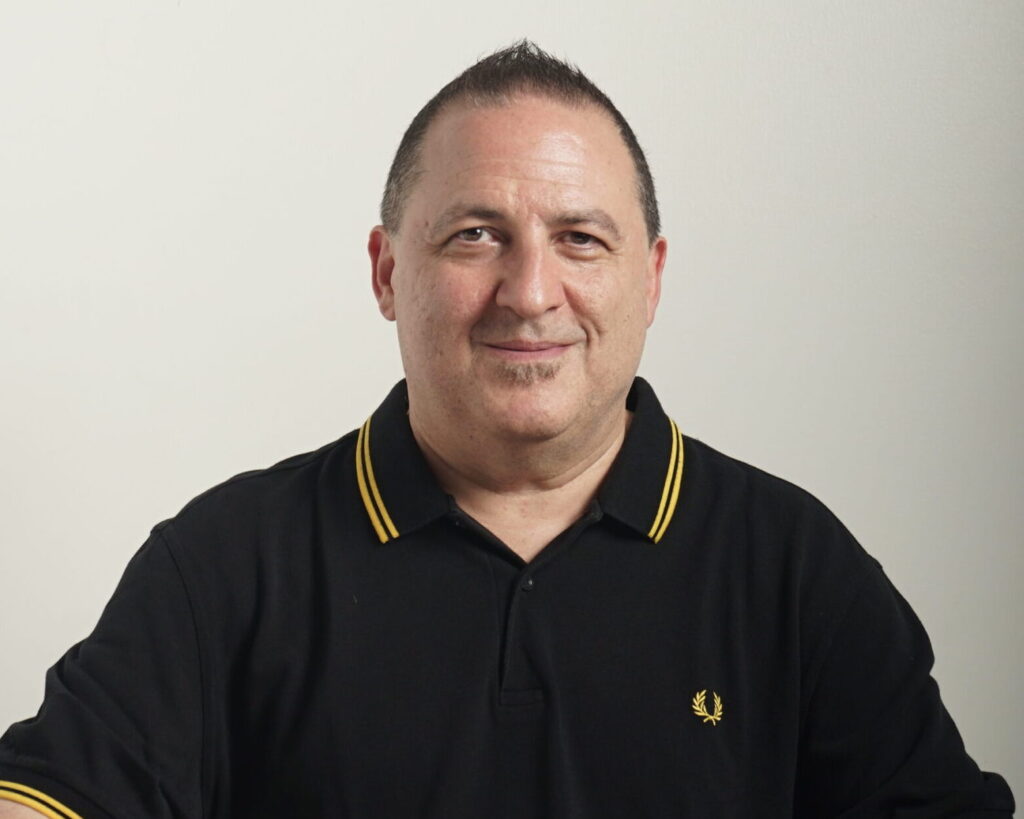 Factor-Inwentash Faculty of Social Work Professor Peter A. Newman has been announced a 2025 Fellow of the Canadian Academy of Health Sciences (CAHS) — an organization that brings together Canada’s top-ranked health and biomedical scientists and scholars to address the country’s complex health challenges through multidisciplinary collaboration.
Factor-Inwentash Faculty of Social Work Professor Peter A. Newman has been announced a 2025 Fellow of the Canadian Academy of Health Sciences (CAHS) — an organization that brings together Canada’s top-ranked health and biomedical scientists and scholars to address the country’s complex health challenges through multidisciplinary collaboration.
The CAHS Fellowship is considered one of the highest honours for members of the Canadian health sciences community. As described on CAHS’s website, Fellows of the Academy are recognized by their peers for their contributions to the promotion of health sciences and have demonstrated leadership, creativity, distinctive competencies, and a commitment to advancing the field.
“Professor Peter Newman has demonstrated, time and again, how rigorous social science can drive meaningful solutions to urgent health challenges,” says Charmaine Williams, Dean of the Factor-Inwentash Faculty of Social Work. “Through his leadership and deep, collaborative partnerships with communities, his work has advanced health and human rights in Canada and globally, demonstrating the vital role of social work research in shaping effective, equitable, and enduring health responses. His work to address the complex health challenges of our time make him very worthy of this recognition.”
Newman has been awarded over 11 million dollars in continuous research funding and published over 190 peer-reviewed publications that together have received over 16,000 citations, ranking him among the most highly cited social work scholars in North America.
And the world-wide impact of his work is tangible. As the lead researcher in MFARR-Asia, a global partnership that is advancing LGBTIQ+ inclusion and human rights in Asia, Newman collaborates with a multidisciplinary team of academics and community partners that has grown from four to now 11 countries and territories. The partnership gathers data on the degree to which LGBTIQ+ people enjoy full and free participation in economic, social, and political life.
“We aspire to nothing less than the full inclusion of diverse 2SLGBTQIA+ people in society as a precious and integral part of life,” wrote Newman in a recent article for SDGs@UofT, an Institutional Strategic Initiative that he is affiliated with at the University of Toronto.
Recent outcomes of Newman’s community-based work include an official endorsement from India’s Ministry of Health on the need to develop and implement anti-discrimination policies for LGBTIQ+ people across government healthcare — including a landmark decision to include gender-affirming hormone therapy and surgery in the Prime Minister of India’s Health Insurance Plan, which mandates the expansion of health insurance coverage to an estimated 4.8 million trans people.
Newman has also long advocated for a biosocial approach — one that combines both social science and biomedical research — to address key challenges such as HIV prevention.
“We live in a world where a biomedical response to disease is prioritized above the well-established upstream social and structural factors that put people at increased risk of infection,” says Newman, who gave a keynote on the topic at the 31st Annual Canadian Conference on HIV/AIDS Research. “You can have the most amazing technology — even a vaccine that is highly efficacious, but if you can’t get that vaccine out to the people who need it most, or if they refuse to use it because of historically justified mistrust or they don’t understand it, that vaccine is going to be virtually worthless to populations at greatest risk.”
CAHS will be holding an induction ceremony for the new Fellows in Ottawa at the National Arts Centre on October 16, 2025.
Learn more about recently announced CAHS Fellows via U of T News.
FIFSW’s 2024-2025 Year in Review
During the 2024-2025 Academic Year, the Factor-Inwentash Faculty of Social Work planted the seeds for transformative change grounded in impactful research, innovative programs and strong community collaborations.
FIFSW’s progress this year demonstrates the value of collaboration and the power of innovation that emerges when we engage communities as true partners in our work. We invite you to explore the following pages to see how our scholarship and practice is making a tangible difference both locally and globally. Our accomplishments over this past year are proof of concept for the goals we have set for the next five. FIFSW’s 2024-2025 Year in Review is a harbinger of the great things to come.
Click here to view FIFSW’s 2024-2025 Year in Review
Building connection for kids in foster care
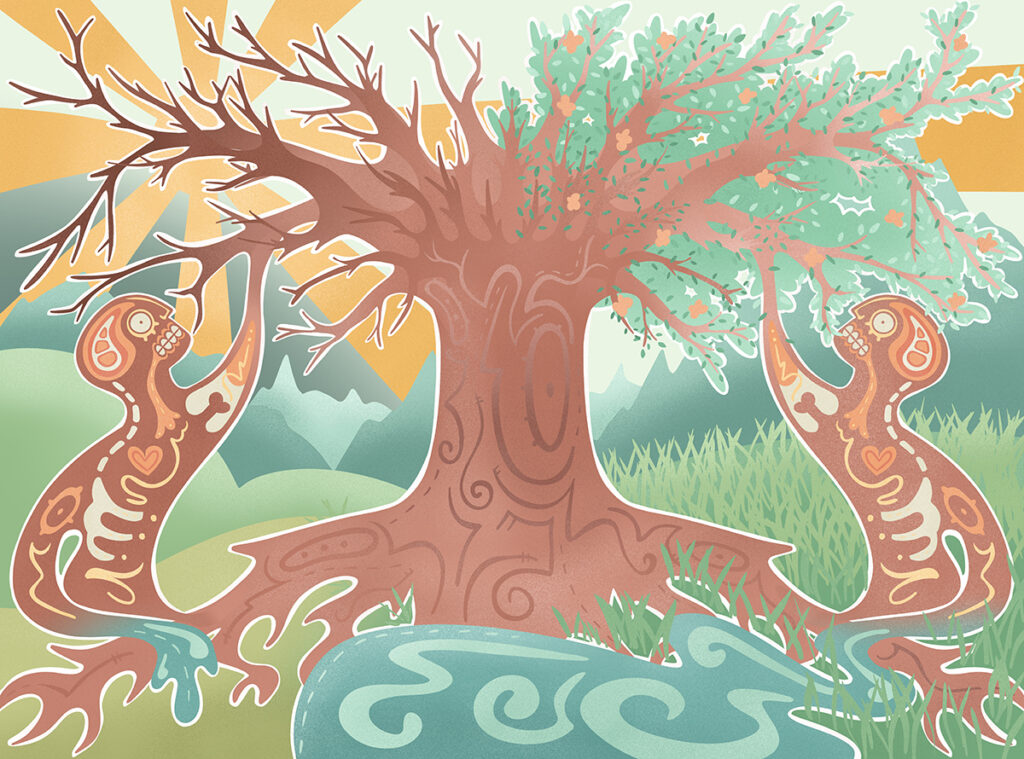
The Duality of the Burden and the Bloom, by Caleb Dysart, Nisichiwayasihk Cree Nation. www.moswadesigns.com (Read more about this artwork after the story, below)
Ashley Quinn knows from personal experience that children in the child welfare system often feel disconnected and face serious challenges to their health and well-being.
But when Quinn, an Assistant Professor at the Factor-Inwentash Faculty of Social Work, looked for the data, it wasn’t there.
“No one really knew how children in the child welfare system were doing,” they say. “The national data collected is service-centred and focused on outputs, rather than outcomes. For example, a worker must record whether or not a child had seen a doctor once in that past year, a medical requirement for each child, but this does not provide important information describing the outcomes of this medical appointment, including concerns, assessment results, diagnoses, medication prescriptions, follow-up care, or interventions.”
So Quinn dug deeper. Their research has found that children in care are hospitalized at nearly twice the rate of other children, most often for reproductive and mental health issues, as well as respiratory conditions. The disparities are even more stark for Indigenous children, who are significantly overrepresented in the child welfare system.
For Quinn, these numbers tell a familiar story — one they are determined to change.
Uncovering the rates and reasons for hospitalizations of children in foster care across Canada
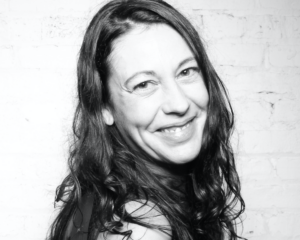
Assistant Professor Ashley Quinn
As co-lead, with Dr. Andrea Evans, of a national study linking 2011 Census data with hospital records from across Canada, Quinn and a team of researchers followed over 31,000 children living in foster homes between 2011 and 2017, comparing their hospitalization rates to those of over five million children not in care. Not only were children in foster care nearly twice as likely to be hospitalized, they were over three times more likely to be admitted for pregnancy-related complications or mental health concerns.
“These are children,” Quinn says. “Seeing children who are pregnant and delivering and having reproductive health complications is concerning. And when we see this level of hospitalization for mental and behavioural disorders, such as ADHD, it tells us there are services being missed in the community.”
The researchers grounded their approach in a set of guiding principles, including the recognition that every number represents a child and that the data is intended to make a difference, informed by the people who are affected most. They also note their research does not capture all children, such as those in kinship or customary care, or those who needed help but never received it.
Working in partnership with Inuit, Métis, and First Nations communities, the research followed the First Nations’ OCAP (ownership, control, access, and possession) principles, along with the six R’s of Indigenous research — respect, relevance, reciprocity, responsibility, relationship, and representation. Métis research principles and Inuit Qaujimajatuqangit (IQ) values, which emphasize societal well-being and collective knowledge, also informed the work.
With support from the Edwin S.H. Leong Centre for Healthy Children, Quinn and their team are now building on this foundational research, using 2017 Census data to extend the study on the hospitalization of children in foster care for another seven years.
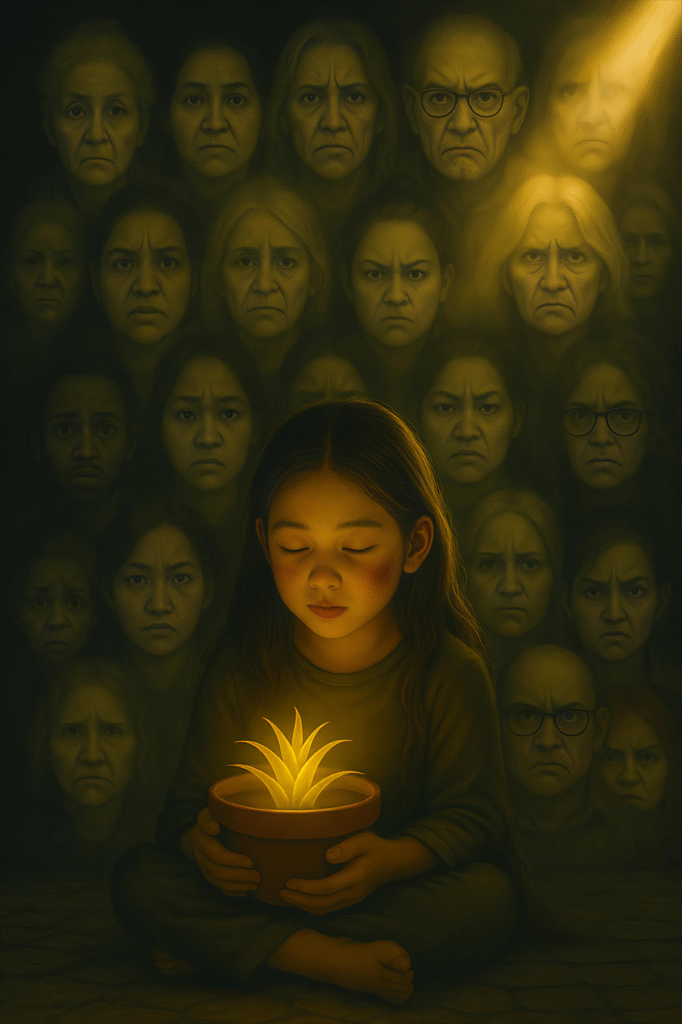
Sorrow’s Soil, by Tina Cheung, Vancouver. (Read more about this artwork after the story, below.)
This work is personal
The numbers tell a story that mirrors Quinn’s personal experience.
“I was a crown ward and pregnant at 16. I was living on the streets, struggling with my mental health and all of those things,” they say. Feeling disconnected through their experience in the child welfare system, they also felt cut off from their Indigenous culture and cultural identity.
Recognizing how disconnection shaped those early years, Quinn set out to explore how foster parents can support the cultural identity of Indigenous children in their care. In this earlier study, supported by a SSHRC Insight Grant, their research team worked closely with several caregivers to understand their experiences.
They found that even the most committed caregivers often struggled, and that it’s not enough to match Indigenous children with foster parents from the same culture. Helping children in care build meaningful connection with their cultural identity takes humility and self-education — it must be intentional, sustained and rooted in relationship. This finding has helped inform Quinn’s subsequent research into a new model of support for Indigenous children and others in foster care.
High-impact tutoring as connection: A new model of support
Quinn’s most recent initiative, in partnership with TutorBright and Dr. Robert Flynn, a professor emeritus from the University of Ottawa, is testing the efficacy of a high-impact tutoring program designed for young people of all backgrounds in the child welfare system.
What sets the program apart isn’t just the academic support, but the way it’s delivered: through trauma-informed care and Cultural Safety, with a focus on social-emotional learning and growth mindset. By tapping into resilience and the strength built through adversity, this approach is especially powerful for children from low socioeconomic backgrounds. Tutors meet with students several times a week, building consistency and trust. Delivered virtually, the program can remain a constant even as other things in the children’s lives continue to shift.
“Young people in care can experience frequent moves that often result in switching schools too,” says Quinn. “This program offers a steady connection. Someone who shows up for you several times a week, someone who meets you where you’re at and believes in you.”
With support from Mitacs the pilot study will assess the feasibility, fidelity and acceptability of implementing a high-impact, growth mindset and trauma-informed tutoring model to improve educational and well-being outcomes among Indigenous, Crown Ward and child welfare-involved youth. After the pilot project, they will conduct a larger study to evaluate the program’s impact and explore its potential to scale and reach more children.
Building a future of connection
“My hope is that some of the kids we’re working with today will become the tutors themselves,” says Quinn. “That they’ll see their worth and give back in ways that are deeply connected to their own life experiences.”
With each study and intervention, Quinn is working to change the story for children in the child welfare system — building a future of connection, belonging and better care.
By Carolyn Morris
About the images
The artwork shared above were created by young people with lived child welfare experience after they reviewed findings from the national study on hospital rates of youth in foster care, co-led by Quinn and Evans, and reflected on their personal experience.
Visit www.moswadesigns.com to learn more about Caleb Dysart and his work. You can also follow Caleb’s current work on social media at @tallestcree.
Artist statement for Sorrow’s Soil by Tina Cheung:
“This piece emerges from a research-driven inquiry into the long-term health outcomes associated with foster care experience, interwoven with personal narrative and symbolic expression.
“At the heart of the work is a young child, seated alone, holding a glowing aloe plant. A subtle bruise marks her face—a quiet testament to the physical wounds that often precede entry into the foster system. She is encircled by the faces of those lost—through death, displacement, fractured bonds, and institutional failure. These faces are not merely representations of grief; they embody the cumulative weight of relational loss and abandonment that defines many foster care journeys. The overwhelming presence of others paradoxically underscores the isolating reality of the foster experience: to be surrounded by systems, families, and case files—yet profoundly alone.
“This aloneness is more than emotional; it is embodied. It is the absence of consistent caregivers, the disappearance of attachments without explanation, and the silence that often follows trauma. These losses compound over time, contributing to the elevated physical and mental health risks documented in those with histories of out-of-home care.
Yet amidst this solitude, the aloe plant offers a quiet counterpoint. Based on a real aloe vera gifted to me by my first counselor, which I cared for over seven years, it symbolizes the slow, often uncertain process of healing. Known for its regenerative properties, aloe becomes a visual metaphor for resilience—proof that care, when given consistently and with intention, can root even in barren soil.This work invites reflection on how abandonment and chronic disconnection shape health and identity across the lifespan, and how even in the most isolated spaces, the potential for healing may persist—small, glowing, and alive.”
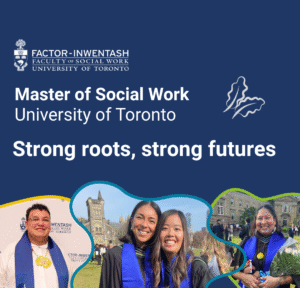 Are you an Indigenous social worker, social service worker or professional interested in pursuing your MSW?
Are you an Indigenous social worker, social service worker or professional interested in pursuing your MSW?
Join us online for an engaging information session on July 15, 12 to 1pm EST to learn about our Master of Social Work programs, financial support & more!
Register for the information session via eventbrite.
Related:
- Ashley Quinn’s research is promoting cultural connections and identity for Indigenous children in the child welfare system
- A bitter truth: 30 years of child welfare data collection reveals deep systemic inequities, racism and harm
- Q & A: Assistant Professor Ashley Quinn seeks to provide an experiential learning environment where students can engage with Indigenous worldviews and perspectives
- VIDEO: Decolonizing Pathways Towards Integrative Healing in Social Work
- Q & A: Rebecca Schuss (MSW 2020) shares how her experience studying Indigenous Trauma and Resiliency at the Factor-Inwentash Faculty led to law school
FIFSW’s Faye Mishna retires after 26 years, but her service continues
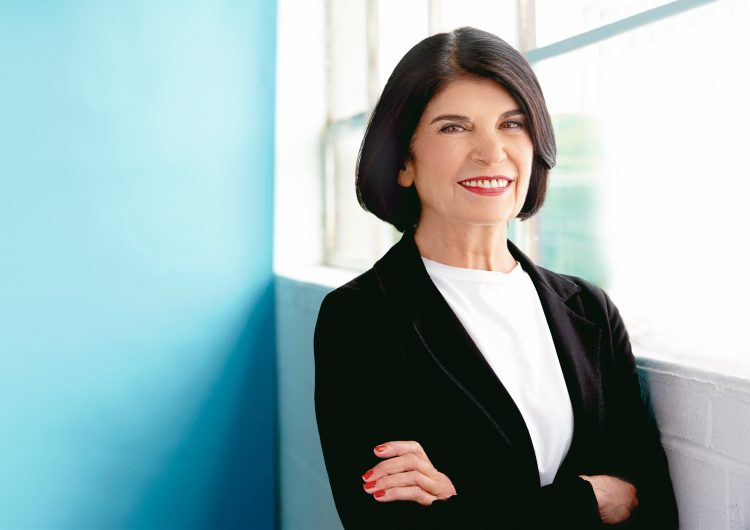
After 26 years of teaching, research and leadership at the University of Toronto, Factor-Inwentash Faculty of Social Work (FIFSW) professor and former dean Faye Mishna is retiring from her academic role.
But she is not stepping away entirely. Her research on technology usage and effects among youth continues, while she also takes on a new position as U of T’s next ombudsperson, beginning July 1.
“I’m really committed to the University and feel lucky to be in a place I love so much,” she says. “I felt like I was ready to retire, but I still wanted to be involved.”
Mishna is proud of FIFSW’s excellence in teaching evidence-based social work geared to the needs of individuals, families, groups, and communities. She also takes pride in FIFSW’s support for faculty, whose ongoing collaboration in teaching, research, and leadership enables them to make a greater difference, locally and globally, within the field of social work and beyond.
Building together
This collaborative approach started on day one for Mishna. When she joined the University in 1999, she and Professor Cheryl Regehr — her longtime colleague who later served as U of T’s provost from 2013 to 2024 — worked together to expand the team model of teaching in the Faculty, developing several team-taught clinical courses.
“It’s a great model,” says Mishna. “You’re always building on everybody’s insights, as opposed to just your own.”
As FIFSW Dean from 2009 to 2019, Mishna continued to invest in this collaborative culture, both within the Faculty and in partnership with community organizations.
“I feel very proud of hiring excellent people and facilitating an environment which thrives on support, excellence and collaboration,” she says.
Under her leadership, the faculty strengthened its approach to research-informed practice, developed new community partnerships and launched a range of hands-on, community-based teaching, programming and practicum opportunities.
“As Dean, Faye articulated a visionary model for FIFSW— one in which research and practice are inextricably linked, each informing and elevating the other. This approach has become the hallmark of our Faculty,” says Professor Charmaine Williams, FIFSW’s current dean. “Her commitment to recruiting outstanding faculty, dedicated not only to scholarship but also to building meaningful partnerships with community organizations, has been instrumental in shaping our Faculty’s reputation for excellence.”
Making a difference through research
Mishna’s research journey began with her front-line experience in children’s mental health. As she pursued a PhD to explore group intervention for youth with learning disabilities, she stumbled upon the prevalence and deep harms of bullying.
“Bullying was not on my radar,” she says. “But in my research, almost all of the youth I interviewed talked about being bullied.”
As she reflected on her earlier work, she realized that bullying had come up repeatedly as a challenge that the youth with whom she worked were facing. That insight changed how she understood and worked with the youth and their families and launched her groundbreaking research career focused on bullying, cyberbullying, and the social and emotional effects of digital life.
Her work has uncovered the complexities of consent and coercion in sexting and image sharing, helping inform how we think about youth digital safety. In 2022, a study published in the journal Research on Social Work Practice listed Mishna, along with four other researchers from FIFSW, among the 100 most impactful global contributors to social work journal scholarship.
Mishna is now embarking on research exploring parents’ perspectives of youth sexting and non-consensual image sharing. She hopes it will equip parents to better support their children, who may be hesitant to come to them to ask for help.
“Adults need to be in this conversation,” she says. “It can no longer be just, ‘don’t do it.’ It’s being done. The best way to make it safe is talking about it.”
New role at U of T draws on social work skills
In her new role as U of T’s ombudsperson, Mishna will draw on her decades of experience in social work practice, teaching and academic leadership.
“You’re not an advocate for the person who’s coming to you, and you’re not an advocate for the University,” she says. “Rather, you are there to be impartial and ensure procedural fairness and outcomes that are just and reasonable”.
The ombudsperson also has the responsibility to identify systemic issues when patterns emerge. It’s a role that resonates deeply with Mishna’s social work background: grounded in ethics, systems thinking and a commitment to doing better.
A legacy of collaboration and impact
As she looks back on her career, Mishna sees every accomplishment as a shared one.
She is grateful for the community she found and helped build at the FIFSW — from early collaborations with colleagues, co-created courses and programs, to the mentors who helped her throughout her career.
In particular, she credits the late Professor Marion Bogo, her longtime mentor and friend, for giving her many years of trusted guidance. “When I was dean, I called her my wise person,” she says.
Mishna, herself, is also a dedicated mentor to many. “Faye has guided countless students and colleagues with wisdom and generosity, offering steadfast support throughout their academic and professional journeys,” says Dean Williams. “While her daily presence will be missed, we are fortunate that her ongoing commitment to research and service will ensure a continued connection.”
At a Faculty and University that have given her both support and independence to pursue research that matters and prepare social work students to make a difference across communities, Mishna is leaving her own legacy of collaboration and impact.
By Carolyn Morris


